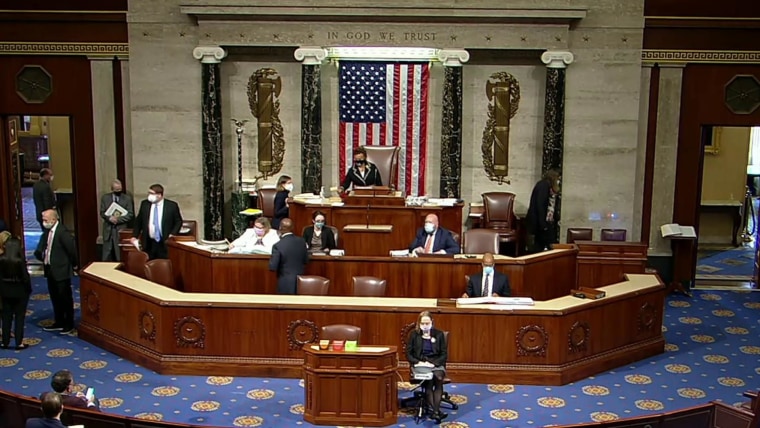The war on drugs came to Berneice Evans’ doorstep in February 1990.
She was a single mother pressing shirts in the back room of a dry cleaner when police officers bashed open the door of her apartment in Neptune, New Jersey. Raising guns at her two young daughters and their elderly babysitter, they announced a raid, demanding to know where Evans was and threatening to put the sobbing girls in the custody of the state child protection agency.
The officers said they found more than an ounce of marijuana. They let the girls leave with an adult sister and jailed the babysitter, and after Evans turned herself in, they arrested her on charges including selling drugs and child endangerment.
Evans, who earned a couple of hundred dollars a week at her day job, sometimes sold small bags of pot — a side hustle that she and others in economically depressed neighborhoods pursued to help pay bills. She also smoked some herself. She pleaded guilty and was sentenced to probation, a punishment that would plague her for years, locking her out of higher-paying jobs, making it harder to find decent housing and sending her youngest children on dark trajectories.
Evans’ arrest and its aftermath, recounted by her and one of her daughters, is the kind of story that is driving a movement to force authorities in states that have legalized marijuana to repair damage wrought by decades of racially disproportionate pot arrests. One proposed solution is to channel tax revenue into social services, health programs and economic development initiatives that might help people like Evans and her family. Some advocates call it reparations for a form of racial oppression.
The debate is unfolding in New Jersey, where voters approved a Nov. 3 ballot initiative that legalized recreational marijuana. State lawmakers have until Jan. 1 to pass a law that will outline how the new pot industry will operate and where the $126 million in projected annual tax revenue will go. Among the sticking points is how to direct part of the money into communities where marijuana crackdowns proliferated.
Evans, 71, who can barely walk after decades of doing laundry and cleaning buildings for a living, has always been troubled by the outsize price she paid for getting caught with weed. It bothers her even more now that the drug will soon be legal to buy, sell and use.
“Imagine all the people like me who tried to work through it and pay these fines, broke, trying to live,” she said. “Now they can switch it up on us and say, ‘It’s all right now, the heck with what you went through.'”
‘I had to live with it’
Evans worked to survive.
It had been that way almost her entire life.
Growing up poor on the Jersey Shore, she started working at 13, finding gigs as a babysitter and a housekeeper. She had her first child in her teens and later had three more, raising them all as a single mother. For years she woke before dawn, shepherded her children to school or a babysitter’s and took a short train ride to work — usually a dry cleaner or a home or business that needed cleaning. The paychecks were barely enough to cover food and rent. From time to time she also sold small amounts of pot, a risk she was willing to take to keep her kids clothed and fed.
She aspired to more — a clerical job with a bigger paycheck and less grind on the body — but the daily slog left little time to pursue it.
Evans returned one afternoon and heard about the raid. She found a bondsman to post bail for the woman who babysat her two youngest children. Then she turned herself in to police, who’d charged her with a litany of offenses: possession of more than 50 grams of marijuana; the sale of, or intent to sell, marijuana; child endangerment; and possession of a weapon (for what Evans said was a single bullet, which she said wasn’t hers, that was found during the search). She posted bail and went back to work the next day. She didn’t tell her employers, fearing they might fire her.
“I had to keep it up. I had to support my family,” Evans recalled.
Evans said officers had overstated the amount of marijuana they’d found, but she ended up pleading guilty to drug sales and child endangerment, while the other charges were dropped. She was sentenced to three years of probation and more than $1,000 in fines.
From then on, she had to disclose the conviction whenever she was asked about any arrests in job applications or interviews. When she did, she was told she wasn’t needed. The employers didn’t explain, and she didn’t ask. But she knew why.
Evans thought she had caught a break when she was hired as a temporary worker to clean and make copies at Bellcore, a telecommunications research company that has since been sold and renamed. She dressed up for the job every day, hoping to be brought on full time.
The change had a profound effect on her second-youngest daughter, Nafeesah Goldsmith, who’d been home at the time of the police raid. “To see my mom dressed to go to work painted a different picture for me of what was possible,” Goldsmith said. “It made me feel like my mom had more value. She was important.”
One day, she was told the company didn’t need her anymore, and she was abruptly terminated. She was given no further explanation, but Evans believed that it was because someone had learned about her conviction. She went back to dry cleaning.
“I had to live with it and do what I could do and go to the jobs that people let me have, and I couldn’t do no better,” Evans said.
In 2012, she paid a lawyer $1,100 to get her conviction expunged, but she said the lawyer, whom Evans knew, didn’t see the case through. Evans said she tried and failed to get her money back, “and that was the end of that.”
Goldsmith said that seeing her mother’s struggle, along with the lingering trauma of the police raid, brought out a rebellious streak that led her to leave home for her father’s and drop out of school. She got pregnant at 15, and, at 21, she was arrested with two friends for kidnapping and robbing a motel owner. She served more than 12 years in prison.
Her younger sister followed a similar path, and, in 2011, after having been arrested on an outstanding warrant, was found nonresponsive in her jail cell, Goldsmith said. Her death was determined to be due to natural causes, Goldsmith said.
Goldsmith earned her high school equivalency diploma in prison and a college degree after she was released in 2015, and she became a community organizer and an activist for criminal justice reform. She sees the drug raid, her mother’s conviction and its ripple effect on her family as an example of how marijuana enforcement blocks people from upward economic mobility.
“What it took from her and what it did to us, you can’t fix that,” Goldsmith said.
Using pot to make amends
Since the war on drugs ramped up in the 1980s, studies have documented how police and courts disproportionately target people of color with marijuana enforcement — and how convictions prevent people from getting into public housing, receiving financial aid from schools, finding better-paying jobs and maintaining custody of their children.
The racial discrepancies exist despite data showing Black people and white people use marijuana at similar rates — and persist even in places that have legalized recreational marijuana but still criminalize some types of possession and sales, the American Civil Liberties Union found in a study released in April.
That has led legalization advocates and civil rights groups to press for more sweeping reforms, including making it easier for people to get low-level marijuana convictions expunged and participate in newly legal marijuana markets, as well as helping communities where marijuana arrests did the most damage.
While some states have set aside licenses and funding for people who want to open legal marijuana shops, fewer have taken the added step of allocating a cut of pot tax revenue for health, educational and social services in harmed communities.
In California, where recreational pot became legal in 2018, lawmakers set aside up to $50 million a year in tax revenue for “community reinvestment grants” for local health departments and nonprofits to help with job placement, mental health services, drug treatment and medical care.
“Bringing Black people into the marijuana industry and making the industry equitable is important, but there are a lot of people who have no intention of being in the industry who were still very negatively impacted by arrests and enforcement,” said Tamar Todd, the legal director for New Approach PAC, which helps fund marijuana legalization campaigns. “They are in communities that we should also be taking this restorative approach and helping.”
Illinois, where legalization began in January, has set up a similar program, funded by a quarter of the state’s marijuana tax revenue, that will distribute grants to local nonprofits and community-based organizations to expand legal services, economic development, violence prevention, youth programs and assistance for people returning from prison.
Evanston, Illinois, outside Chicago, went a step further: The City Council voted to create a local marijuana tax that would fund a $10 million reparations program, which would pay Black residents harmed not only by marijuana arrests but also by other discriminatory policies, such as redlining. The first wave of payments, planned for early 2021, will help recipients cover down payments or repairs on homes, said Kemone Hendricks, the founder of Evanston Present and Future, a nonprofit involved in the project.
“Just that door being opened to reparations for Black people is a very big thing,” Hendricks said.
The U.S. House of Representatives passed a marijuana decriminalization bill this month that would create a fund for communities damaged by the war on drugs. Although the measure isn’t likely to pass the Republican-led Senate, proponents said it marked a new step in repairing the damage of unequal drug enforcement.
The New Jersey campaign
The fight to link marijuana legalization with financial help for damaged communities in New Jersey goes back nearly four years, when state lawmakers first introduced a legalization bill, framing it as a way to help end the discriminatory impact of drug enforcement in a state where, according to an ACLU study, Black people are more than three times as likely as white people to be charged with marijuana-related offenses.
But lawmakers didn’t include community reinvestment provisions in their early bills, and in March 2019 the legalization effort collapsed. Lawmakers punted the issue to voters, who on Nov. 3 approved legalization by a 2-to-1 ratio. That put lawmakers on a Jan. 1 deadline to write a law regulating a new cannabis industry — and revived the push to send money to damaged communities.
Black lawmakers, Black clergy members, civil rights organizations and criminal justice reform advocates joined forces, framing their case as a form of reparations for the economic devastation of the war on drugs. This time, they were buoyed by a national reckoning on racial justice that followed the May 25 police killing of George Floyd in Minneapolis.
Among their demands — along with provisions to make it easier for Black people to get started in the legal cannabis industry and for people to get their pot convictions expunged — was an excise tax to fund community-based organizations working on job training, legal aid, health care, housing, food assistance, literacy and youth recreation.
“The only right way and just way to do legalization is to make sure a decent amount of the revenues go back to communities impacted by this injustice,” said the Rev. Charles Boyer, founder of Salvation and Social Justice, a coalition of religious leaders. “Anything less is injustice.”
The campaign resulted in a new version of the bill, agreed to last week by leaders of the state Senate and the state Assembly, which would set aside 70 percent of sales tax revenue for social justice programs. The leaders haven’t yet made the details public, but they expect to approve the final version Dec. 17.
Assemblyman Jamel Holley, one of the Black lawmakers who championed them, said the community investment provisions are essential for the law to live up to ideals that drove the legalization effort: correcting wrongs of the past and promoting racial equality. Holley’s father was a drug dealer who was in prison for much of Holley’s childhood; many of his friends also grew up in families torn apart by drug arrests.
The provisions will fund “programs for people who have been harmed not only by the war on drugs but all the inequalities that African Americans and others live every day,” Holley said.
Ami Kachalia, a campaign strategist for the ACLU of New Jersey, said New Jersey could become a model for the rest of the country.
“We want to light the way for other states,” she said.
Moving on
Evans doesn’t want anything to do with marijuana anymore.
She is retired and lives in a senior citizens building in South Jersey, about 100 miles from the place where she struggled for so long. She has spent much of her life trying to forget about her arrest and what it caused.
But she is happy that weed is legal in New Jersey. “It should have happened a long time ago,” she said.
If it had, she said, maybe things would have turned out differently.
For more of NBC News’ in-depth reporting, download the NBC News app
Goldsmith, on the other hand, thinks there may be a future for her in the new cannabis industry.
As a criminal justice reform advocate, she has spoken out against solitary confinement in prison and recently joined the drive to give Black people a fair shot at obtaining licenses and financial support to sell legal marijuana. She dreams of opening a marijuana boutique at the Jersey Shore, not far from where the raid happened.
“My mother had to wear the punishment,” she said, “but I will prosper now that it’s legal.”
Source: | This article originally belongs to Nbcnews.com











